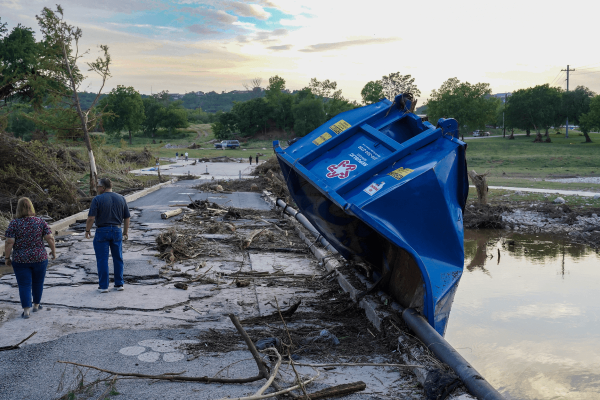In July, Environmental Protection Agency Administrator Lee Zeldin announced an intention to revoke the Endangerment Finding. This 2009 ruling is the EPA policy that says greenhouse gases harm people—a finding that gives the EPA the authority to regulate climate-warming pollution.
If successful, the revocation would enshrine climate change denial as the official policy of the U.S. government and make it much harder to regulate fossil fuel emissions. The authors of the report cited to legitimize this move are a veritable all-star team of five climate-change-denying scientists, an extreme minority who contract the 97% of global scientists who believe humans are causing climate change. The absurdity is compounded by timing: Zeldin’s announcement came in the midst of the summer “Danger Season” when heat waves, floods, fires, and hurricanes leave millions reeling from weather crises exacerbated by climate change. According to the Union of Concerned Scientists, 98% of people living in the United States have faced an extreme weather alert since May 1, with over half of those alerts exhibiting clear, scientifically established connections to climate change.
Read the Full Article

